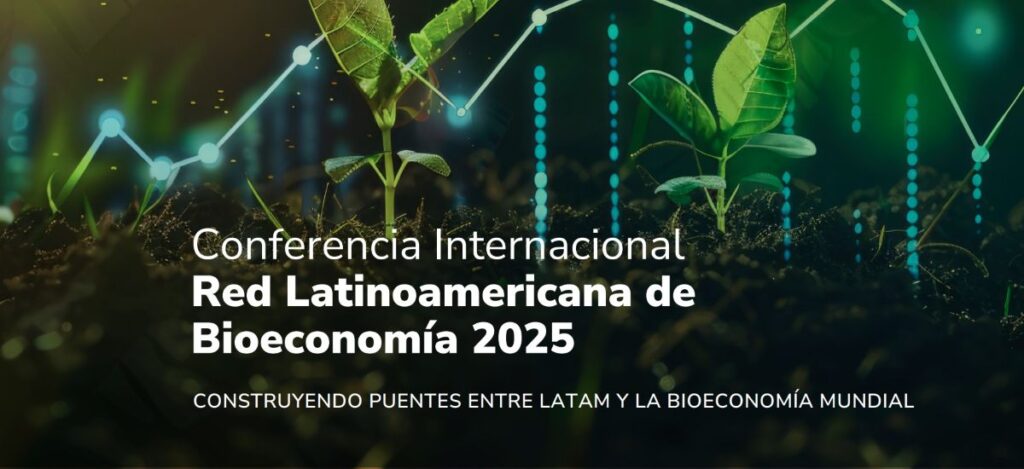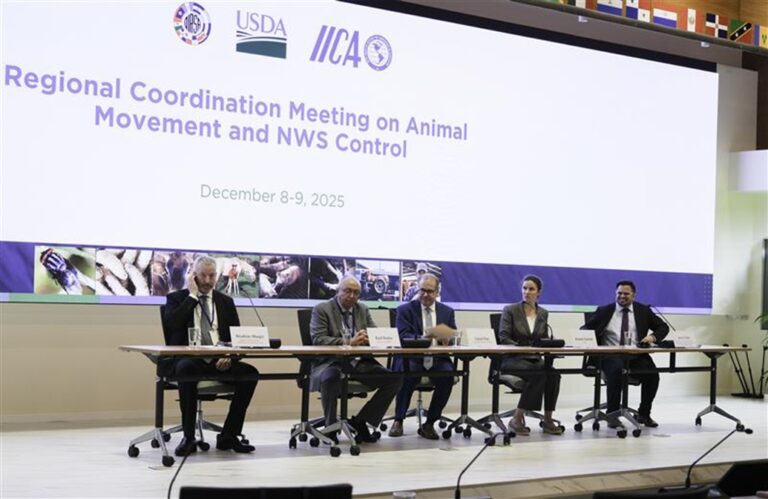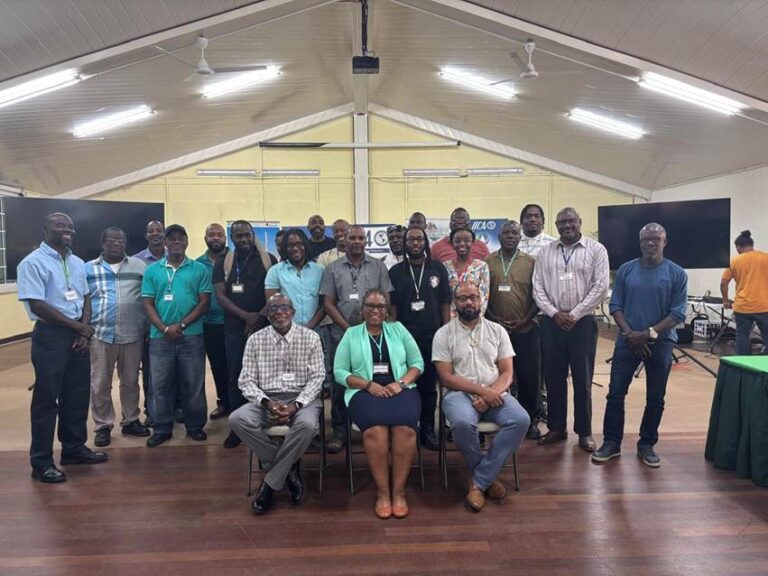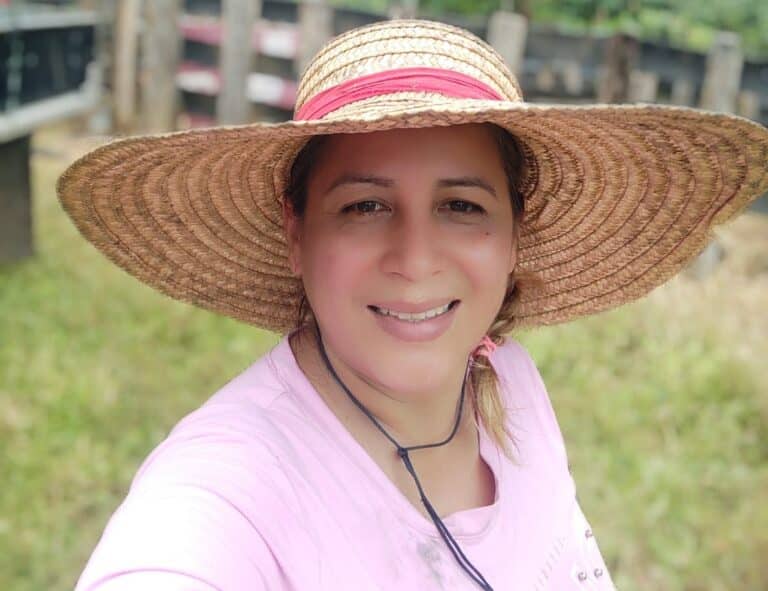
San Jose, 9 May 2025 (IICA) – Roughly one hundred and twenty experts from around the world will attend the International Conference of the Latin American Bioeconomy Network from May 12 to 15 in San Jose, Costa Rica, to analyze key trends that will shape the sector’s future and to explore how they can be used to foster more competitive, sustainable, resilient and inclusive development.
The event, scheduled to take place at the Headquarters of the Inter-American Institute for Cooperation on Agriculture (IICA), will also seek to foster discussion on bioeconomy advancements, challenges and opportunities in the Americas, and on its new technologies, emerging markets, financing, regulatory frameworks and incentives. Likewise, it will promote strategic partnerships to fuel the transition towards more sustainable economies.
Global bioeconomy leaders; government authorities; researchers; academics; private sector and international organization representatives; and entrepreneurs, among others, are slated to participate in the event.
Among them will be Ben Durham, Chief Director of Bio-innovation at South Africa’s Department of Science and Innovation, and who is responsible for leading the G20 Initiative on Bioeconomy (GIB); Joachim von Braun, scientist and professor at Bonn University, Germany; Justus Wesseler, Chair in Agricultural Economics at Wageningen University, in the Netherlands; Christine Lang, Co-Chair of the International Advisory Council on Global Bioeconomy (IACGB); Tilman Schachtsiek, who oversees the National Policy Strategy on Bioeconomy in Germany’s Federal Ministry of Food and Agriculture; Noa Sainz, Policy Officer in the Bioeconomy and Food Systems Unit at the European Commission’s Directorate-General for Research & Innovation; Nicoló Giacomuzzi-Moore, Executive Director of the Circular BioBased Europe Joint Undertaking (CBE JU); and Manuel Otero, Director General of IICA.
The vast list of participants will also include Alicia Koch, Director of Global Ethanol Export Development at the U.S. Grains Council; Tatiana Schor, Chief of the Amazon Coordination Unit at the Inter-American Development Bank; Edith Paredes, Administrative Director of the Amazon Cooperation Treaty Organization (ACTO); Glenda Ortega, Undersecretary of Natural Heritage of Ecuador; Matías Carámbula, Undersecretary of Uruguay’s Ministry of Livestock, Agriculture and Fisheries; Orlando Vega, Costa Rica’s Deputy Minister of Science, Technology and Innovation; Julio Álvarez, Undersecretary of Ecuador’s Coordinating Ministry of Production; Helen Jhoana Mier, Regional Chief Technical Advisor at the United Nations Industrial Development Organization (UNIDO); and Guillermo Anlló, Regional Specialist, Science and Technology Policy at the United Nations Educational, Scientific and Cultural Organization (UNESCO).
The Conference will open with a panel discussion on the bioeconomy of the future, in which international experts will discuss the main perspectives on bioeconomy sciences, technologies and markets throughout the world.
The discussions will take an in-depth look at the role of the bioeconomy in the future of agriculture and agrifood systems, and how it could transform them, given its potential impact on sustainability, productivity, value addition and ecological restoration.
According to Hugo Chavarría, IICA’s Manager of Bioeconomy and Innovation and Executive Secretary of the Latin American Bioeconomy Network, “The program will include other high-level panel discussions. For example, it will examine the status of the bioeconomy in regions and countries that pioneered the concept and that are now global leaders in formulating and implementing strategies, policies and investments for its promotion. It will highlight various global platforms that were recently established to promote cooperation on bioeconomy policies, technology and business. The event will also analyze how the bioeconomy has been positioned in the main international negotiation forums”.
Furthermore, he noted that, “We will also have plenary sessions on the status of the bioeconomy in the region and on the advances in countries that have assumed greater leadership in bioeconomy policies and investments. Several countries in the Americas are banking on the bioeconomy as a strategy to drive the competitiveness of their industries; add increasing value to biomass and biodiversity; restore ecosystems; foster environmental sustainability and generate greater economic opportunities in rural areas”.
During the remaining days, there will be a series of thematic workshops focusing on fundamental issues such as strategies and public policies, financing, sustainability, innovation, youth, metrics and international insertion. The objective is to provide public and private actors, academics and international cooperation with an opportunity to exchange views and to collaborate on the main challenges, opportunities and joint courses of actions for the bioeconomy in the Americas.
The 2025-2026 Action Plan of the Latin American Bioeconomy Network will also be developed at the meeting. IICA serves as the Technical Secretariat of the Network, which was established in early 2023 as a forum for discussion, exchange, coordination and development among the main bioeconomy experts and promoters in Latin America.
It has eighty member institutions, including the Inter-American Development Bank (IDB), the United Nations Educational, Scientific and Cultural Organization (UNESCO), the Biodiversity Finance Initiative (BIOFIN), the Stockholm Environment Institute (SEI), the Amazon Cooperation Treaty Organization (ACTO), the Global Green Growth Institute (GGGI) and the Tropical Agricultural Research and Higher Education Center (CATIE), among others, as well as the cooperation agencies of France, Germany and the United Kingdom.
At the national level, key members include ministries and secretariats (of the Environment, Agriculture, Bioeconomy, Science and Technology, Economy, Trade, etc.), research centers, universities, trade associations and support services for the bioeconomy in Argentina, Brazil, Colombia, Costa Rica, Uruguay, Ecuador, Mexico, Bolivia, Chile, Peru, Guatemala and Paraguay.
Exhibition, field trips and agricultural biobusinesses
The conference will feature biobusiness exhibits, ranging from food, bioinputs, bioplastics and impact investments to biotechnology solutions, in a bid to demonstrate the transformative potential of the bioeconomy in the Americas. The exhibitors will be key institutional players such as universities, research centers, private companies and innovation labs.
The international meeting will also host field trips to introduce the delegates to bioeconomy experiences in Costa Rica. They will visit research centers, businesses, biorefineries that transform waste biomass from tropical crops (pineapple, coffee, sugar cane) and biodigestion plants that produce energy and fertilizers from pork, poultry and fishery production waste. There will also be outings to sustainable tourism initiatives.
Moreover, the Conference will include the official launch of IICA’s Agrobiobusiness and Investment Center – a new initiative to drive the creation and development of agricultural and bioeconomy business ventures.
The Center will offer services to foster innovation, build technical and entrepreneurial capacities and provide comprehensive support throughout the different stages of development of these businesses, to assist in shaping a more dynamic and inclusive bioeconomy that will generate employment.
The Conference’s first day of activities will be livestreamed on IICA’s YouTube channel in both Spanish (@IICAnoticias) and English (@IICAnews).
More information:
Hugo Chavarría, Manager of the IICA Innovation and Bioeconomy Program, and Executive Secretary of the Latin American Bioeconomy Network.
hugo.chavarria@iica.int











